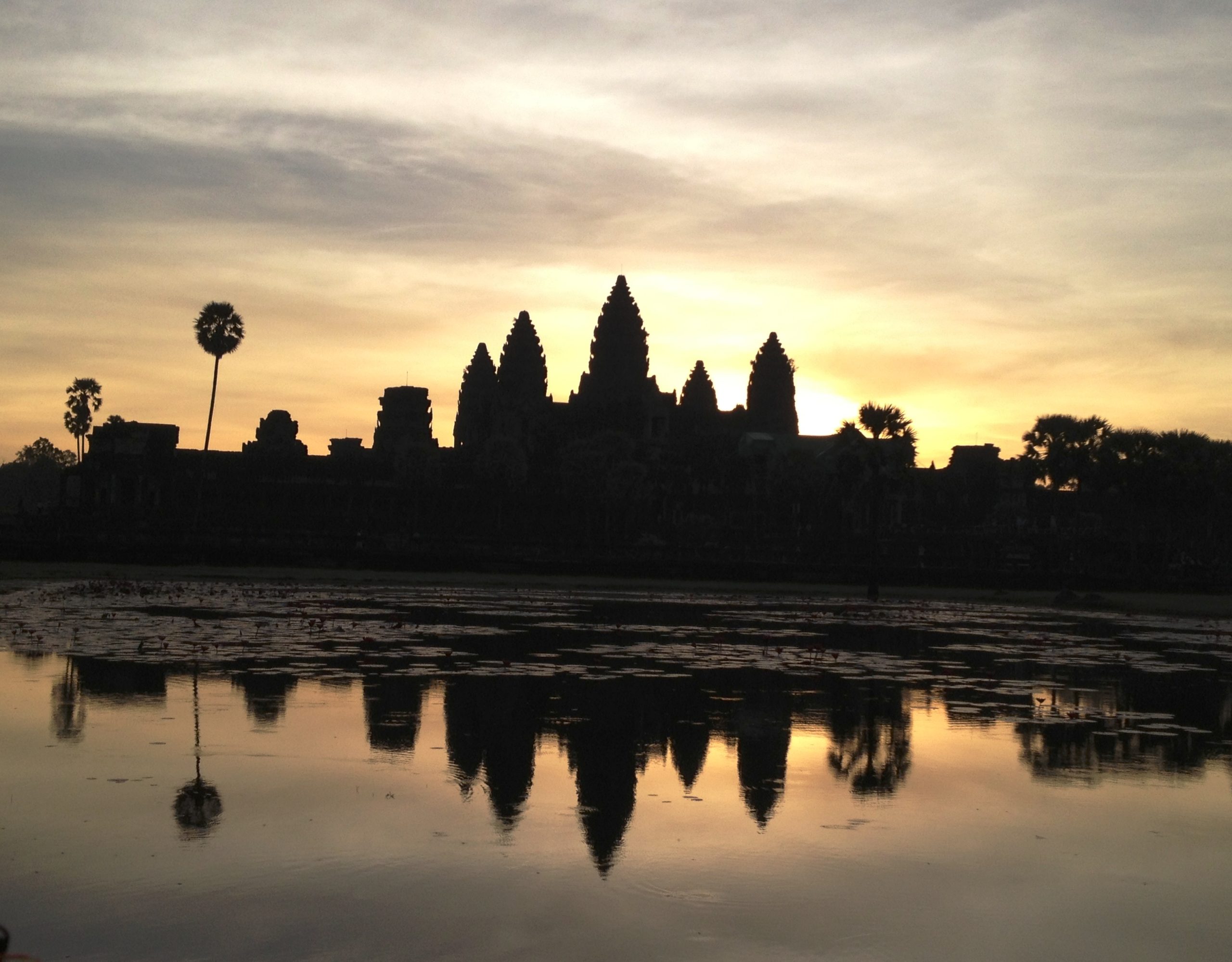
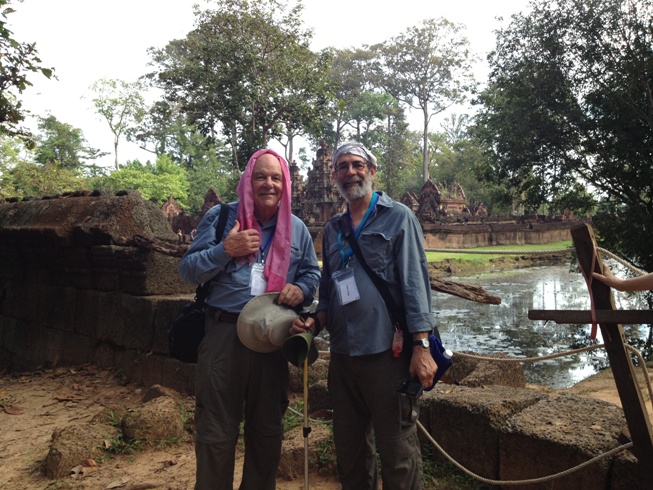
Our last days in Cambodia were packed with magnificent and mysterious Angkor temples and local culture. Heat and humidity sapped my remaining energy, so I am now composing a final post from the comfort of home. Click on thumbnail images to enlarge.
CAVEAT: Please understand that a trip of several weeks to a little-known culture means that I am apt to misconstrue what we have seen, heard and experienced. And I do not mean to conflate Vietnam and Cambodia into a single culture.
Deference to authority – An overarching hierarchical framework governs family, society and business relations in both Vietnam and Cambodia (and, I expect, in other countries in the region). The degree of deference toward one’s elders and superiors is unimaginable to Westerners. According to Neil L. Jamieson in Understanding Vietnam, the hierarchical order of society is considered “part of the intrinsic structure of the universe, a state of affairs that is both ‘natural’ and unalterable.”
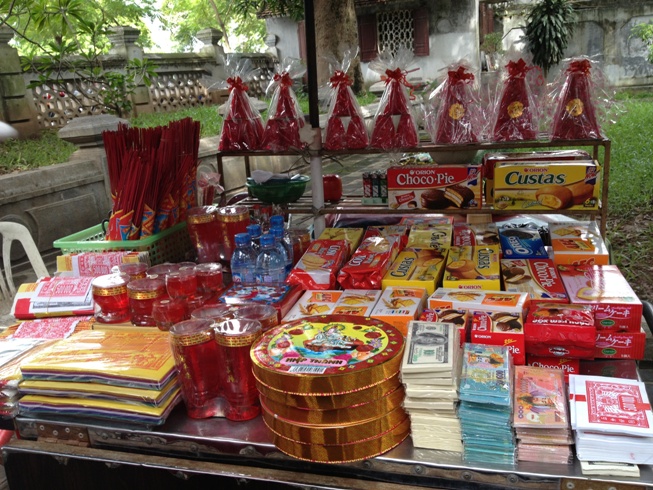
It seems just about everyone (with the possible exception of practising Christians) worships their ancestors. Specific obligations to pray to the ancestors and bring offerings to a temple twice a month in accordance with the lunar calendar directly influence the ancestors’ involvement in the fortunes of those still living.
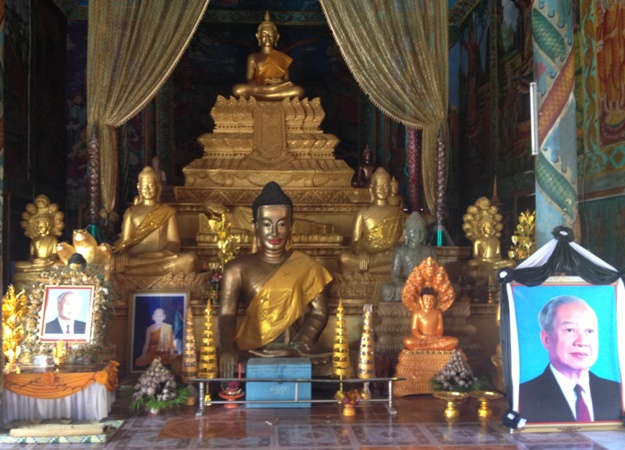
We saw the reverence for a “God-King” in Cambodia in the figure of Norodom Sihanouk, the recently deceased former king (and mercurial tyrant and one-time member of the Khmer Rouge). “He was the father, and we are the children,” said Pich Ravy, a vegetable seller who traveled to the Royal Palace, where King Sihanouk’s body will lie in state for the next three months.
It is not a stretch to see how an emperor, king, party leader or boss can easily assume and exercise power. The concentration of moral authority within a strictly prescribed hierarchy makes it difficult to imagine that democracy, as we know it, with multiple parties vying with one another over competing visions and leadership, is a realistic or even desirable option.
Superstition – In Vietnam, the Zodiac and numerology also play a large part in how people conduct their personal and business lives. For instance, a woman born in the Year of the Tiger is believed to carry the traits of the tiger, making it all but impossible to find a husband. Odd numbers are propitious and even numbers bring bad luck, except for the number 8, which is considered lucky by many but the sign of handcuffs to others. If the first customer of the day makes a small purchase, business for the rest of the day will be poor.
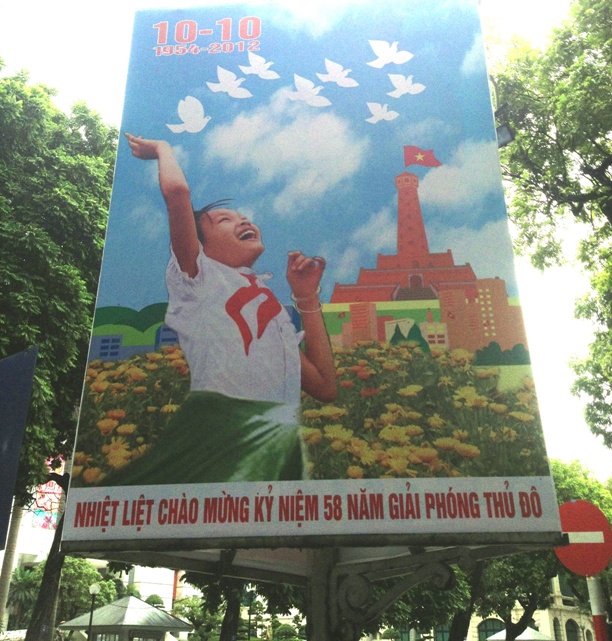
Vietnamese communism – We never did get a clear answer about what is Communist about Vietnam these days. Surely, the marketplace operates with few restrictions and there are virtually no public services like health, education and welfare. Limits on freedom of speech seem to be a matter of being discrete within earshot of government officials. The press is a bit more tightly controlled. When CNN broadcasts items about Vietnam or China, the screening is blocked with music or a technical difficulty notice. Vietnam has closer ties to South Korea than to North Korea.
Ho Chi Minh is officially considered Vietnam’s greatest patriot and liberator, although when I asked one guide whose father had fought for the South and been “re-educated” for six years after the war what he thought of “Uncle Ho” and the requirement that every household hang his picture, he rolled his eyes and said nothing.
Blurry boundaries – Within a tight hierarchical framework, it seems that some boundaries are very fluid, notably in religion. People in Vietnam combine ancestor worship (which is considered a custom, not a religion) with bits of other Eastern religions, without regard for theological consistency. In fact, the fastest growing religion in Vietnam, Cao Dai, draws upon ethical precepts from Confucianism, occult practices from Taoism, theories of karma and rebirth from Buddhism, and a hierarchical organization (including a pope) from Roman Catholicism. Its pantheon of saints includes such diverse figures as the Buddha, Confucius, Jesus Christ, Muhammad, Pericles, Julius Caesar, Joan of Arc, Victor Hugo, and Sun Yat-sen. In Cambodia, the official religion is Buddhism, but many elements of Hinduism and Animism are to be found in its practice. No one seems to much mind these blurry boundaries.
